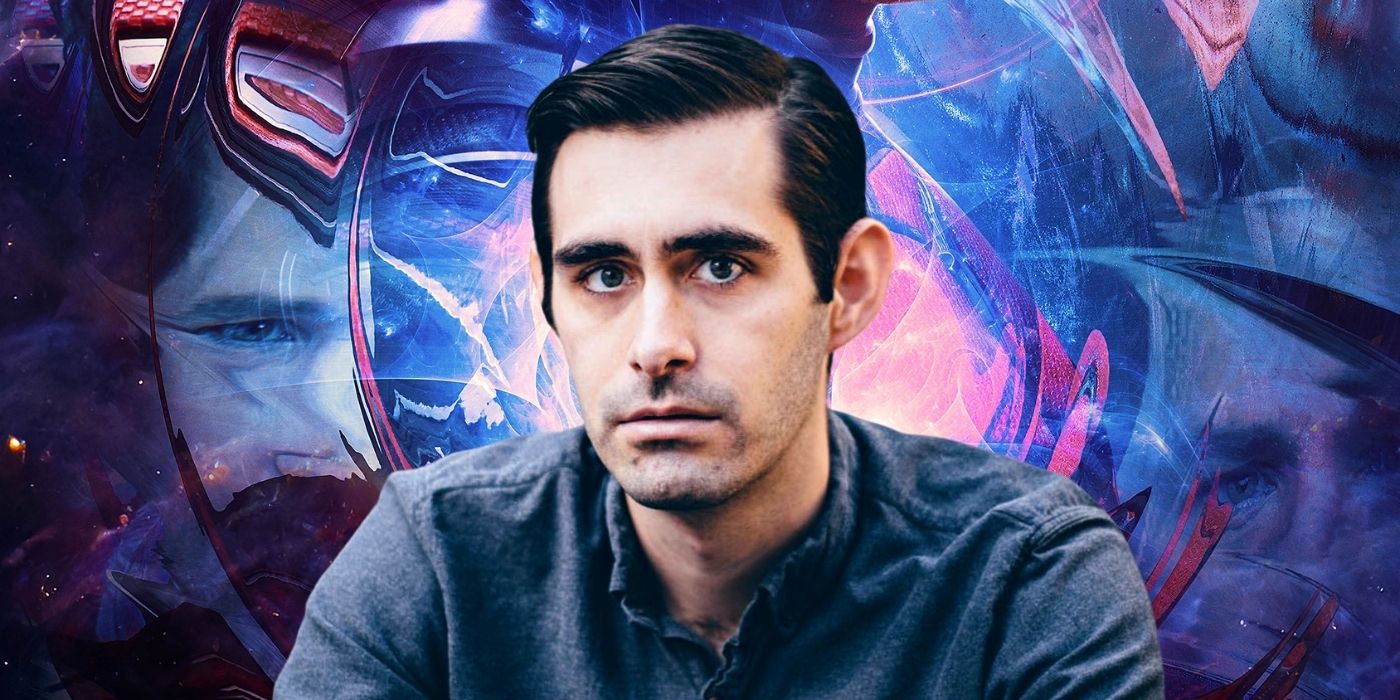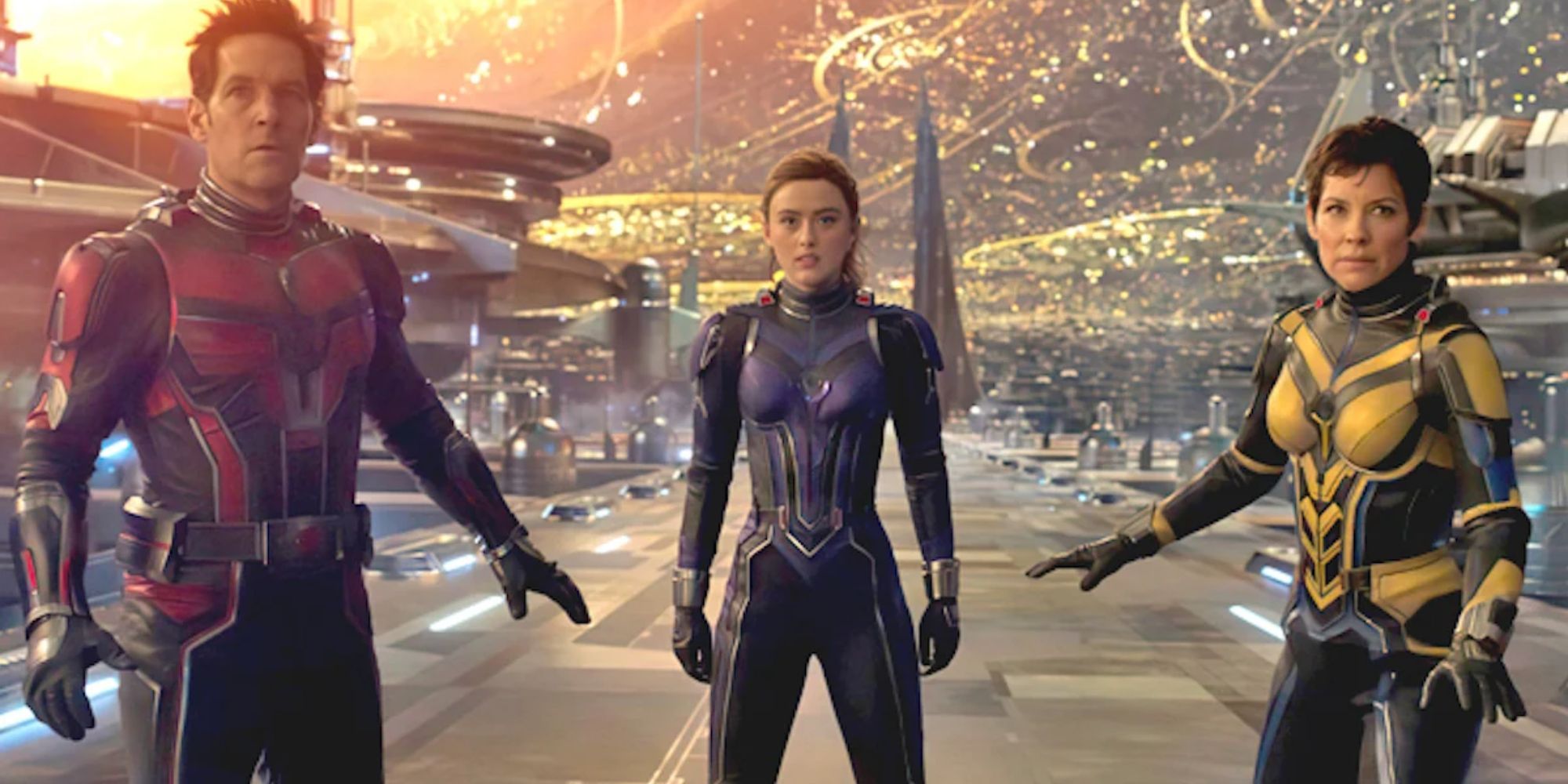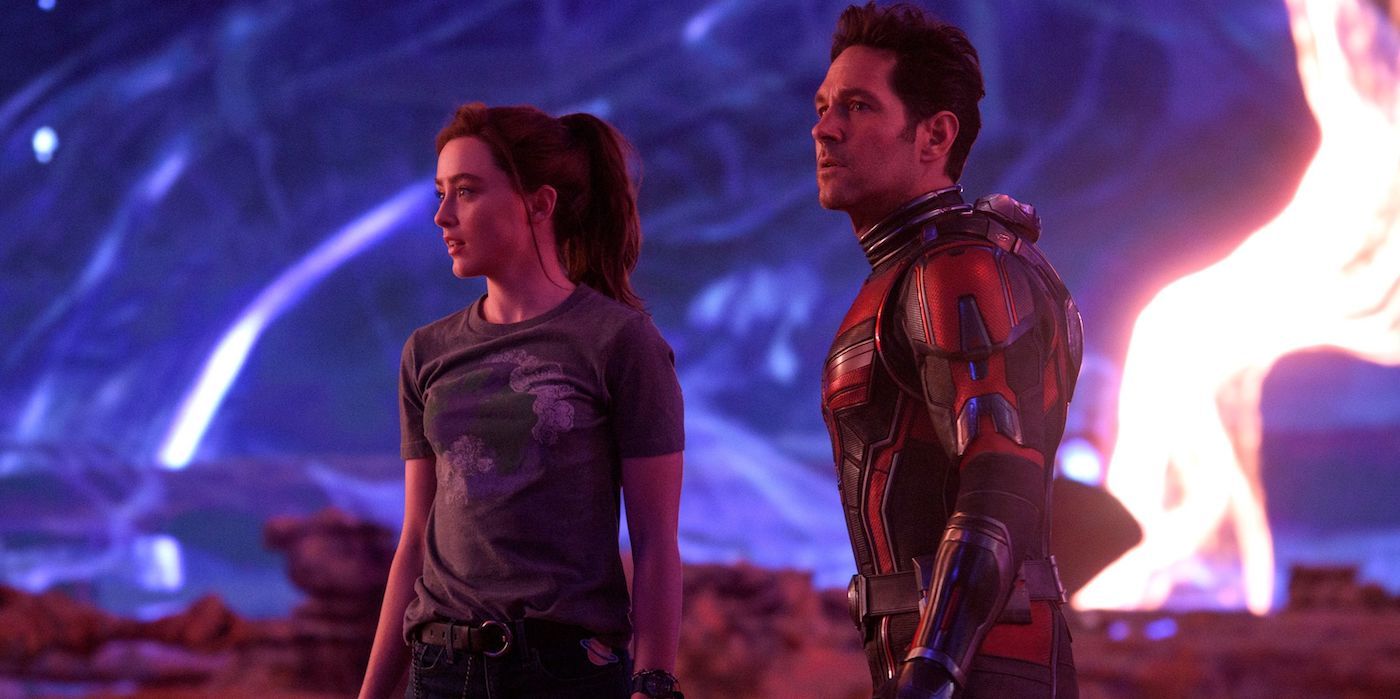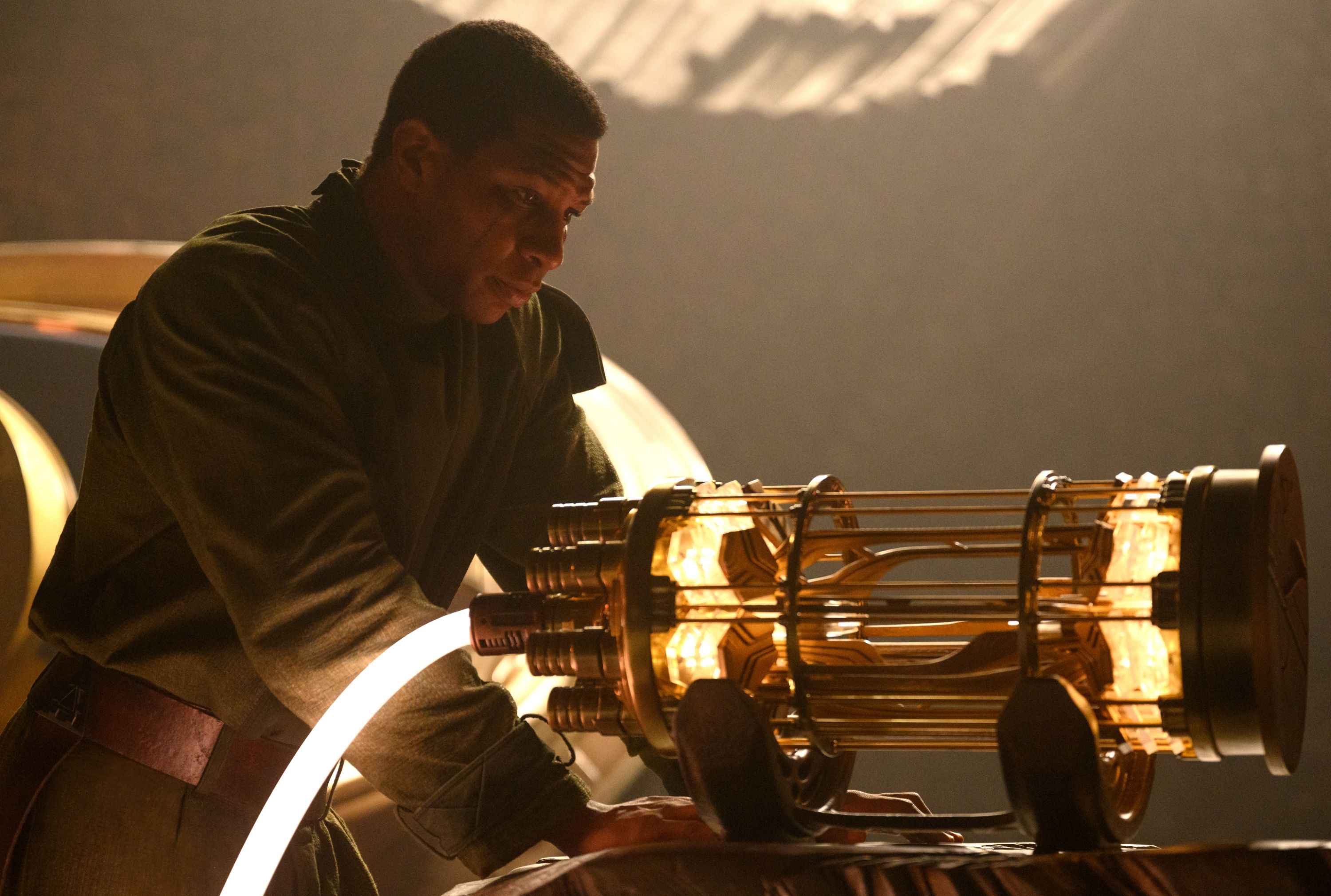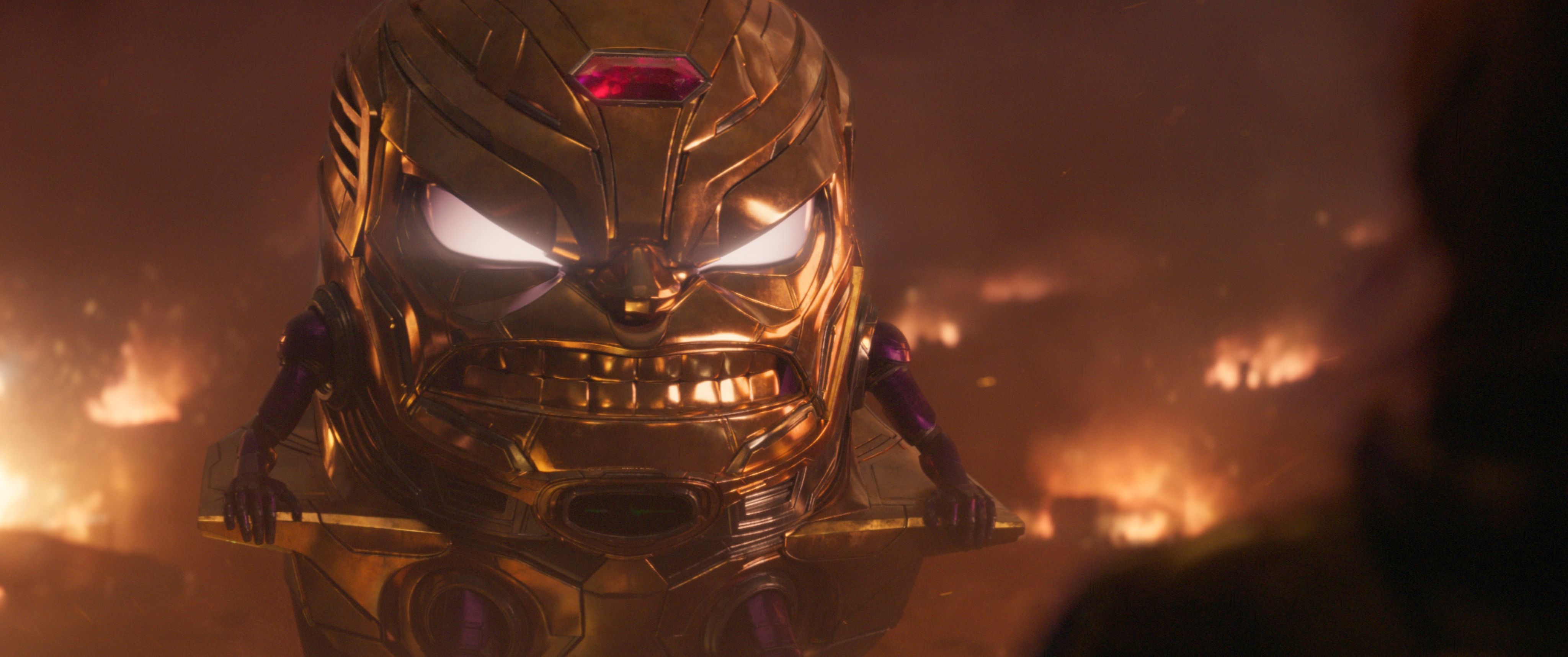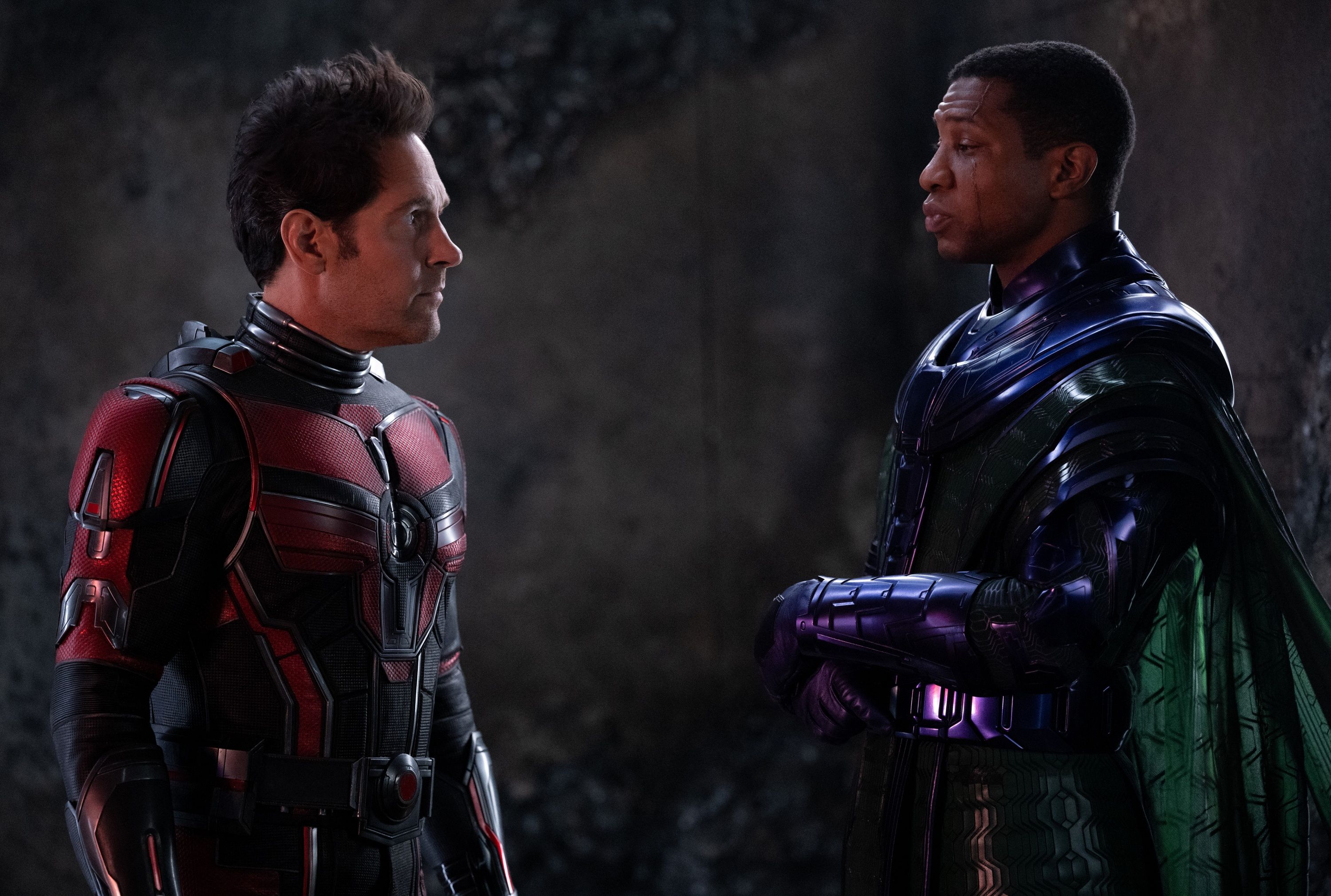Writing one good standalone movie is challenging enough. Ant-Man and the Wasp: Quantumania writer Jeff Loveness had to do that and deliver a story that fits in the existing MCU while also paving the way for key elements of the franchise moving forward.
The third installment of the Ant-Man series sees Scott (Paul Rudd), Cassie (Kathryn Newton), Hope (Evangeline Lilly), Janet (Michelle Pfeiffer), and Hank (Michael Douglas) sucked into the Quantum Realm. While there, they encounter the Marvel Cinematic Universe’s next big bad, Kang (Jonathan Major). In addition to setting the stage for the Council of Kangs and the devastating threat Kang the Conquerer warns Scott about, Quantumania also functions as a family adventure with a heavy emphasis on the evolution of the father-daughter dynamic between Scott and Cassie.
With Ant-Man and the Wasp: Quantumania playing in theaters nationwide, I got the chance to chat with Loveness about his experience penning the first film of Phase 5. Read all about that, how he hoped to infuse the film with Jurassic Park vibes, which scenes changed the most from script to screen, and loads more in the interview transcript below.
JEFF LOVENESS: [In response to Perri's posters/books]: Is that Michael Crichton? Is that Jurassic Park back there? The book, or what do you have?
Oh yeah, there's a lot! Jurassic Park, Scream, Stephen King, all the essentials.
LOVENESS: Jurassic Park, that was kind of the vibe I was trying to go for. Like one of those 90s family-adventure movie kind of vibes. That's cool.
I'm always down for movies with that vibe!
When you first began writing this script, what character or what element of the story were you most looking forward to exploring, and then ultimately, what part of the film wound up being more creatively fulfilling to write than you ever could have imagined?
LOVENESS: Oh yeah, three come to mind, so humor me there, I suppose. [Laughs] Honestly, getting to work with a talent like Jonathan Majors, it gave you the opportunity to actually go for a classical tortured kind of antihero supervillain with a bit of Heathcliff from Wuthering Heights, or to give him that sort of energy. But also, to write a supervillain that wasn't quirky, that wasn't having little off witticisms or little jokes. To actually go for broke with a guy that could deliver lines like, “I will burn you out of time,” and kind of mean it, you know? And to really have that presence, and to put him up against Paul Rudd who's got that likable everyman — like I said with Jurassic Park, I love Robin Williams 90s movies in the way that he played such a good protagonist, hero dad. Hook or Jumanji! Or Steve Martin, in a way, Father of the Bride. There used to be this likable befuddled hero dad and Paul Rudd I think just nailed that.
The joy for me is I got to do an adventure-comedy. I got to do something that was intentionally goofy and had actual gags that weren't just trying to be meta or in on the joke or commenting about other Marvel stuff. I actually got to do, you know, up for debate, but like Three Amigos-style comedy or Princess Bride. I got to do adventure-comedy, which I just love so much. Men in Black, that kind of vibe of you can have threats and stakes, but you also get to have Michael Douglas talking about ants and stuff. So to me, it was the thrill of being able to write a movie that had Kang the Conqueror and MODOK in it, which like, that's the best of both for me.
You bring up so many good keywords and titles right there!
Writing any film script is tough enough. Writing one that has to stand on its own while teeing up future films seems like a colossal challenge. To get a little insight into what it takes to do that, can you give us an example of something that had to be in the movie to set up something for the future but required some workshopping or finessing to feel like a natural component of this particular adventure in the Quantum Realm?
LOVENESS: Oh, let me think. Honestly, I know there's so much discussion about Phases, and what? Five’s what we’re on. Phase 9. But I honestly did just try to make this a standalone movie on its own. There are some breadcrumbs and Kang is obviously gonna be around for a while.
I think maybe to answer your question, the biggest example would be to make Kang tell the truth. We meet him out of order in his story. He doesn't live in a straight line, like he says. And so I love, and I'm referencing too much, I apologize, but I love those big stories where you're dropped into the end of it. Or like Star Wars, we come in on the fourth Star Wars movie. A lot has happened before that we don't even know about. All we know is there's a princess and there's a droid, and this one guy in a black helmet knows this old man, and for some reason, they go way back. That's all you need to know.
So I loved writing Kang the Conqueror as this exiled Napoleon, or a Julius Caesar who had gotten betrayed by 100 Julius Caesars who got rid of him. [Laughs] To have a little bit of a history that we don't know, and have a little bit of a mission and a crusade that we don't know, and there's something that he has to do. There's a war that he's been fighting across time for centuries that he's in the middle of and he's trying so desperately to end. And you can even see Jonathan Majors in tears right before he goes down to wipe these people out because he was so close to being done. He was so close to his saga closing out, and yet, Janet betrayed him again.
I think that, to me, was maybe the thrill of the movie, was to make it seem like you're missing something with this guy, and to really make you lean in and to wonder why he cares so much and what's going on. When Janet finally learns who he is and she asks, “Who is Kang,” you see him almost trying to explain it away and says, “Who I need to be.” That, to me, was the fun of this character, to kind of breadcrumb in a few nonlinear missions that will pay off later. But beyond that, I also just wanted a movie with MODOK, and I had a lot of fun.
I can be a little bit of a backstory nerd and one detail I was curious about was, did you ever come up with the specifics of why this Kang was exiled?
LOVENESS: You’ve always got to be careful because this could come up in Avengers or down the road. I think in my idea — let's go off of that scene with him and Janet. There is also a bit of tragedy to this character, and guilt. He literally admits to her, she is the first person he can ever actually be honest with, he's broken time. He, with his omniscience and his nonlinear existence, is able to see the multiverse dying, and he's able to see all these timelines breaking apart because of him and all of his variants, much like America and climate change. It's like we’ve fucked the world up and it's falling apart, and are we selfish enough to just keep going and leave our air conditioners on all day? Or, are you gonna take ownership and go out there and fix the problem by burning it all down and starting over?
I think in that Janet and Kang scene there's a lot to dive into and there's a lot that's unsaid, but there's a lot that is said. So that, to me, is perhaps the backstory of like, this Kang the Conqueror is a crusader against himself and the other ones don't like that so much. So, it's Julius Caesar trying to clean up Rome and the Senate's not so pleased about that, and they took action into their own hands as well.
I also love hearing about how a story evolves from script to screen, so of all the scenes in this movie, which would you say changed the most from page to what we see in the final film?
LOVENESS: Oh boy. You know, you add scenes and you reshoot some stuff, but honestly, reshoots were not that extensive. I think we were pretty happy with what we got and then there's massaging. There was a lot more Kang and Janet that I'm sad to have lost, but I think some of that will come into play later on, and maybe is better served in an Avengers movie. There was, like you said, more backstory. There was more front-story. [Laughs] What's the opposite of backstory? End-story?
These are the terms you have to sort out when you're dealing with the multiverse!
LOVENESS: Exactly. This is a guy who's literally seen the multiverse die, and so what did he see, and who's coming? And so we kind of had to sand that down to make it a more streamlined story that focuses on this movie while also promising stuff.
There was a lot more MODOK. Oh! I got killed by MODOK! I was in a deleted scene. I was a henchman who was talking back to MODOK and he blew me up. In the Loveness cut, we'll see that. I'll be very prominent. So that's probably the scene that I miss the most. I miss being murdered by MODOK.
I would take that frame, blow it up, hang it on my wall, and cherish it forever.
LOVENESS: Really was a dream. Yeah, it was a dream to be murdered by MODOK.
That statement makes all the sense in the world to me.
I do have to ask about the ending of the movie because there are currently some rumors out there that it changed quite heavily. Is that the case and, if so, how did the endings differ and what inspired that particular change?
LOVENESS: Yeah. I don’t know. We had gamed out and you're pitching out, you know, in your head as the writer, all the ways it can go. Certainly, you go through all these different scenarios. Yeah, I've seen the same. You know, there’s leaks and there’s rumors. But I think, I don't know, I'm an old-school comic book guy myself, and we're kind of like sports radio fans, you know? Everyone just kind of throws stuff out and has ideas.
I don't think Scott getting stranded there — I see the merit of it. I certainly did and we gamed that out as well and we talked about it and all that, but at the end of the day, it is quite literally what happens at the end of Ant-Man and the Wasp. It’s him trapped in the Quantum Realm again, and I don't think that would have been satisfying either. And also, it is exactly how he gets out in Endgame. I think the repetition is not solid there.
While also, I don't know, I see all these bloodthirsty people who want Paul Rudd to get beat to death. [Laughs] I think people are bringing some baggage to the movie a little bit of like, I'm not too worried about Kang the Conqueror. I think he'll be okay. Like, I'll go to the mat for that movie. And even in historical terms, conquerors, "great men of history,” they're known much more for their defeats than they are for their victories, I would argue. In another world, I was gonna be this high school history teacher, and when I think of Napoleon I don't exactly think of his military acumen at the battle of Austerlitz, you know? I think of him getting beaten at Waterloo, I think about him getting turned back at Moscow. I think about Alexander the Great running out of worlds to conquer and spiraling, and being defeated in India.
I really defend our portrayal of Kang because we got to show a weakened, vulnerable Kang that's sort of like Lion in Winter Kang, exiled Kang, and we got to strip him away from his almost omnipotent time powers, and we really got to see the person. I think that really shines through in those scenes with Janet. That, to me, was way more important than showing a flashback of him killing the Hulk or something, you know? There's gonna be plenty of time for that stuff. Don't worry. I'm so happy that we got to show the broken humanity of Kang the Conqueror because now you're gonna be rooting for that guy in whatever form he shows up, and whatever version of him he is. I'm thrilled with what Jonathan did. It was just masterful to watch him.
Looking ahead briefly, is there anything about Destin [Daniel Cretton] as a filmmaker that you’re most excited to write for? Something you can only play into or do because he’s at the helm of Kang Dynasty?
LOVENESS: 100%. I forgot that he directed it; I went to see Short Term 12 by myself in the Laemmle theater over on Sunset … I think the theater name changed, But I remember I saw that and was barely in the theater, you know, a little indie movie, but man, there is that scene in Short Term 12 where LaKeith Stanfield finally opens up to Brie Larson. It's just incredible acting. And I remember thinking, this is obviously phenomenal writing and acting, but the directing is so intimate. Couple that with Jonathan Majors’ performance in The Last Black Man in San Francisco where he's so tender and so quiet and so deliberate.
Take me out of the equation, you know? [Laughs] Throw me out the window! Maybe the internet would love that, I don't know. [Laughs] But I think those two guys together are gonna make a villain for the ages, and I just want to serve them up the best meal that I can. But I think Destin has such a good control over character and quiet, and moments of human empathy and connection between each other.
In a superhero movie, that's make or break. The reason I love the X-Men are because they are a family. The Avengers are coworkers. The X-Men are a family. Or like the Fantastic Four, obviously, are a family. And so, I think to write an Avengers movie that has a bit more of a tender family kind of personal connection, even between their villains, I think will be really exciting to see. So I think Destin’s the right guy for the job.

